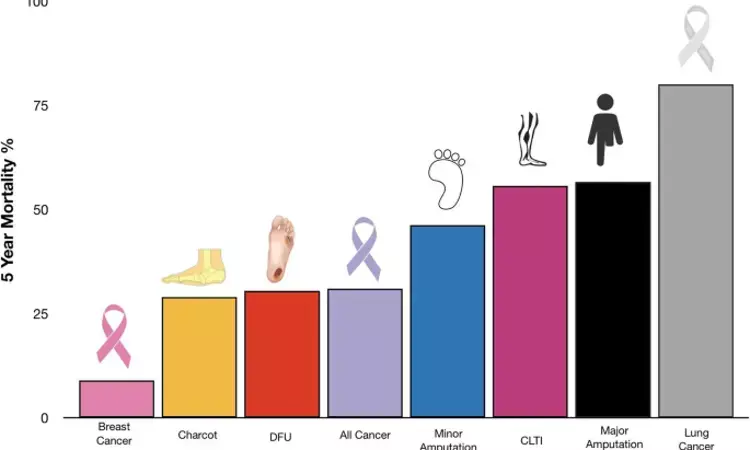- Home
- Medical news & Guidelines
- Anesthesiology
- Cardiology and CTVS
- Critical Care
- Dentistry
- Dermatology
- Diabetes and Endocrinology
- ENT
- Gastroenterology
- Medicine
- Nephrology
- Neurology
- Obstretics-Gynaecology
- Oncology
- Ophthalmology
- Orthopaedics
- Pediatrics-Neonatology
- Psychiatry
- Pulmonology
- Radiology
- Surgery
- Urology
- Laboratory Medicine
- Diet
- Nursing
- Paramedical
- Physiotherapy
- Health news
- Fact Check
- Bone Health Fact Check
- Brain Health Fact Check
- Cancer Related Fact Check
- Child Care Fact Check
- Dental and oral health fact check
- Diabetes and metabolic health fact check
- Diet and Nutrition Fact Check
- Eye and ENT Care Fact Check
- Fitness fact check
- Gut health fact check
- Heart health fact check
- Kidney health fact check
- Medical education fact check
- Men's health fact check
- Respiratory fact check
- Skin and hair care fact check
- Vaccine and Immunization fact check
- Women's health fact check
- AYUSH
- State News
- Andaman and Nicobar Islands
- Andhra Pradesh
- Arunachal Pradesh
- Assam
- Bihar
- Chandigarh
- Chattisgarh
- Dadra and Nagar Haveli
- Daman and Diu
- Delhi
- Goa
- Gujarat
- Haryana
- Himachal Pradesh
- Jammu & Kashmir
- Jharkhand
- Karnataka
- Kerala
- Ladakh
- Lakshadweep
- Madhya Pradesh
- Maharashtra
- Manipur
- Meghalaya
- Mizoram
- Nagaland
- Odisha
- Puducherry
- Punjab
- Rajasthan
- Sikkim
- Tamil Nadu
- Telangana
- Tripura
- Uttar Pradesh
- Uttrakhand
- West Bengal
- Medical Education
- Industry
Diabetes Increases Long-Term Mortality Risk After Major Lower Limb Amputation: Study

Researchers have found in a study of 2,542 adults that diabetes is associated with a 62% higher 5-year mortality rate following major lower limb amputation, despite slightly lower 30-day mortality (9.2%). Risk was further elevated with above-knee amputations and peripheral vascular disease. Therefore researchers emphasize the need for tailored long-term care strategies for diabetic amputees.
Major lower limb amputation is associated with high morbidity and mortality, particularly among patients with diabetes. Previous studies suggest variable mortality rates, but none have investigated the impact of diabetes in Wales.
A population-based cohort study was conducted using anonymised data from the Secure Anonymised Information Linkage Databank. Survival from all incident major amputations in persons ≥ 18 years from 2006 to 2013 in Wales was assessed over 5-year follow-up. Kaplan-Meier survival curves and Cox regression models, stratified by amputation level, were used to examine the time-dependent effect of diabetes on mortality while adjusting for confounding factors.
Results: 2542 individuals underwent major amputation, 48.4 % had diabetes. Mortality at 30 days was 9.2 % and 61.9 % within 5 years. Patients with diabetes had higher 5-year mortality (67.0 %) compared to those without diabetes (57.1 %). Diabetes was associated with an increased risk of long-term mortality (hazard ratio 1.62, p < 0.001), but a reduced risk of death in the first 30 days post-amputation. A history of peripheral vascular disease and above-knee amputation were strong predictors of mortality.
Time-stratified analysis demonstrates lower short-term but higher long-term mortality risk for persons with diabetes following major amputation. Further research is required to explore interventions aimed at improving survival.
Reference:
Jennifer Hayes, James M Rafferty, Wai-Yee Cheung, Ashley Akbari, Rebecca L Thomas, Steve Bain, Claire Topliss, Jeffery W Stephens. Impact of diabetes on long-term mortality following major lower limb amputation: A population-based cohort study in Wales, Diabetes Research and Clinical Practice, Volume 223, 2025, 112156, ISSN 0168-8227.https://doi.org/10.1016/j.diabres.2025.112156.
Dr. Shravani Dali has completed her BDS from Pravara institute of medical sciences, loni. Following which she extensively worked in the healthcare sector for 2+ years. She has been actively involved in writing blogs in field of health and wellness. Currently she is pursuing her Masters of public health-health administration from Tata institute of social sciences. She can be contacted at editorial@medicaldialogues.in.
Dr Kamal Kant Kohli-MBBS, DTCD- a chest specialist with more than 30 years of practice and a flair for writing clinical articles, Dr Kamal Kant Kohli joined Medical Dialogues as a Chief Editor of Medical News. Besides writing articles, as an editor, he proofreads and verifies all the medical content published on Medical Dialogues including those coming from journals, studies,medical conferences,guidelines etc. Email: drkohli@medicaldialogues.in. Contact no. 011-43720751


